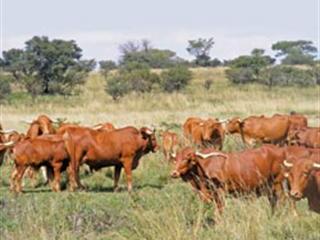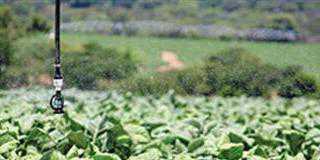
What do you think lies at the core of the escalating stock theft problem in South Africa?
It’s important to distinguish between stock theft cases where producers comply with the Animal Identification Act 6 of 2002 as far as the marking and branding of livestock is concerned, and producers who don’t. In the first instance, stock theft is not curbed because of poor police investigations and an ineffective criminal justice system, where offenders are wrongly acquitted or inappropriate sentences are imposed.
In the second instance, non-compliance by producers who do not properly mark their animals makes it extremely difficult for the police to successfully investigate stock theft cases. The onus then rests upon the state to prove ownership of stolen livestock. If suspected stolen livestock are not marked, branded or tattooed as required by legislation, the offender must receive the benefit of the doubt. Ever-increasing unemployment is another factor that adds to escalating stock theft. Some offenders steal stock for economical gain and others merely to survive – which is not an excuse to commit crime.
What does stock theft cost the industry annually?
In 2010/2011, goats to the value of R36,3 million, sheep to the value of R85,8 million, and cattle worth R256 million were stolen.

You’ve said that red meat producers can no longer rely on the police, and that they’ll have to take responsibility for stock theft themselves. Can you expand on this?
I should qualify my comments. Producers can never take over the responsibilities of the police. Producers who suffer stock losses are victims of crime and should be treated as such. Then again, the police, in many instances, are unable to investigate stock theft cases effectively. Many police officials don’t even have the basic knowledge on how to act when they arrive at a stock theft crime scene.
Producers therefore need to empower themselves by learning, among others, how to secure a crime scene and what their rights are when it comes to performing search and seizure on vehicles and premises. They should take ownership of reported cases and familiarise themselves with the procedures the police are obliged to follow when dealing with reported criminal cases. Complainants must demand constant communication on the progress of stock theft cases.
In what way have the police let the red meat industry down in the fight against stock theft?
The ineptitude of Community Service Centre (charge office) members is one of the biggest challenges. In many instances, they don’t report the stock theft to the Stock Theft Unit in time, which results in the loss of crucial evidence. Sometimes the stock theft cases are reported two to three days, or even a week, later. Many of these members don’t have the basic skills and language proficiency to take down a proper statement, and often lack the basic skills to gather evidence and to secure the crime scene.
We have evidence that some of them don’t even alight from their vehicles when they arrive at the crime scene. In these cases the conduct of the police officials involved either resulted in the closure of cases as ‘undetected’ or led to acquittals in court due to lack of prima facie evidence. We welcome the fact that stock theft was declared a priority crime. However, with the exception of one or two of the seven stock theft units in North West for example, there is very little evidence of pro-active action in terms of the prevention and detection by the rest of the units in the province.
What has caused the breakdown in communication between producers and the police?
Instead of rendering a proper service to the community in accordance with their mandate, some police officials adopted the attitude that they are doing people a favour in serving them. Many producers simply do not trust the police anymore.
In fact, it’s said 37% of stock theft cases aren’t reported. This could mean the problem is considerably bigger than we think.
I twice reported poor service delivery at a certain police station in North West at the end of November 2011.
I have not received any feedback on the progress of these complaints. We as producers and the police function in isolation. We need to co-operate to reach our common goal, namely the reduction of stock theft. However, the fact remains that we cannot simply accept poor service delivery.
What process should farmers follow if they believe police response has been inadequate?
Follow the official chain of command – lay a complaint with the police station commander, then the cluster commander and, if all else fails, the provincial commander.
Are organised agricultural structures in their current form sufficiently geared to tackle stock theft? If not, what should be done?
The responsibility to reduce levels of stock theft will always remain that of the police and the courts. The contribution that organised agricultural structures such as the RPO can make to tackle this crime is limited. Organised agriculture can encourage its members to comply with legislation, but can’t force them to do so. It can empower its members to play an active role in crime prevention, but can’t take over the investigating powers of the police.
Although stock theft forums have been established in all provinces, we also need to have stock theft information centres in all the provinces. These centres are a national initiative from the police and should be supported by the red meat industry. Such centres will promote better working relations and trust between the stakeholders in the ongoing fight against stock theft.
Adv Jacques Swanepoel can be contacted at [email protected]. He is in the process of compiling a training document which will teach farmers how to act at a stock theft scene.













